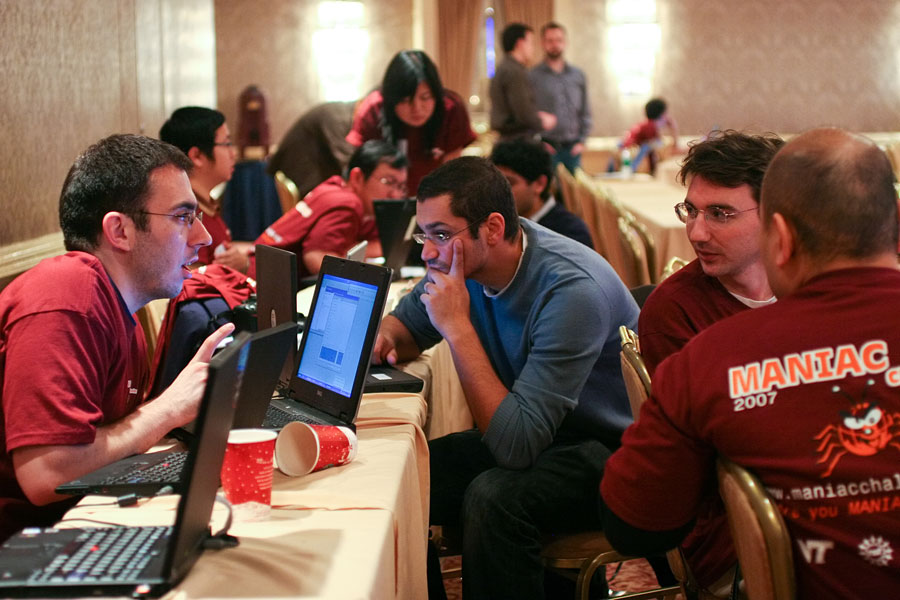MANIAC competition scheduled for March; Virginia Tech calls for entries

Student and research teams from around the world are invited to develop cooperation strategies for the future's ad hoc wireless networks, and compete for glory in the Second MANIAC Challenge, from March 8-9, 2009, in conjunction with the IEEE PerCom conference in Galveston, Texas.
The MANIAC (Mobile Ad-hoc Networking Interoperability And Cooperation) Challenge, organized by Virginia Tech with funding from the National Science Foundation (NSF), is an event aimed at a better understanding of the cooperation and interoperability in ad hoc networks. It also aims to encourage student interest in solving the complex issues involved, explained Luiz DaSilva, associate professor of electrical and computer engineering in Virginia Tech’s College of Engineering, National Capital Region, who with Allen MacKenzie, an electrical and computer engineering assistant professor, is organizing the competition.
Undergraduate and graduate students involved gain a unique experience with experimental research on actual, uncontrolled, ad hoc networks. These wireless networks of the future are expected to be established anywhere on demand and could involve thousands of phones, radios, and other mobile devices. Each device may require the assistance of neighboring devices to move data towards their destinations.
“Because of the limitations of power, storage, and processing capabilities, user devices will face a tradeoff between self-interest and common network goals. How altruistic can a device be and still get its own data delivered?” said DaSilva.
At the MANIAC Challenge, the competing teams come together to form a large ad hoc network. The organizers generate traffic destined for each team. Each team can program its own cooperation strategy in the network, dynamically making forwarding and routing decisions. Team are judged on how much of the traffic destined to them makes it through the network, how little energy they consume in forwarding traffic, and a subjective evaluation of the quality of their strategy design.
The first MANIAC Challenge was held in December 2007 and the group generated a rare multi-hop wireless network with a six-hop diameter. The team from the University of Kosice in the Slovak Republic was awarded first prize for strategy design, while the team from the University of North Carolina at Charlotte came in first for performance. The only team composed solely of undergraduate students, representing Bucknell University, came in second for performance.
“The feedback we received from the student teams and faculty advisors who participated in the first MANIAC Challenge was overwhelmingly positive,” reported DaSilva.
Teams interested in competing should download the software and rules from the competition website. Hardware requirements are simple: commodity laptops and Institute of Electrical and Electronics Engineers 802.11b/g cards. Some travel grants are available for participating teams.




